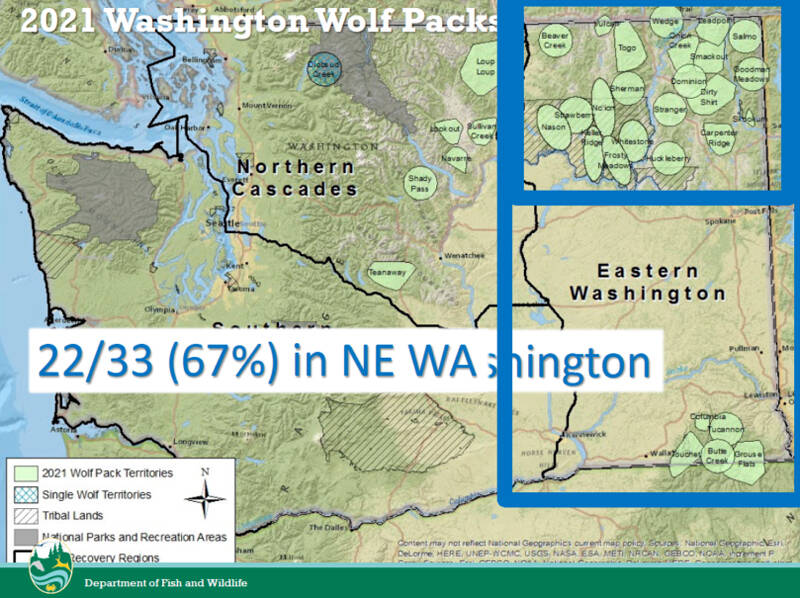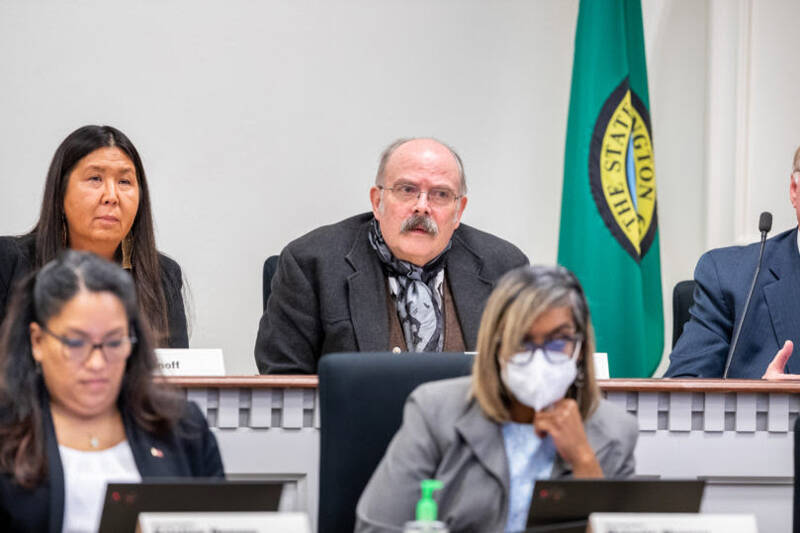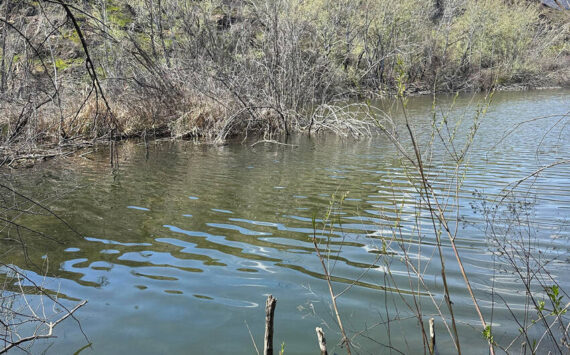Submitted by Brendon Wold, House Republican Caucus Communications
OLYMPIA — Rep. Joel Kretz, R-Wauconda, has introduced legislation in Olympia today that would direct the state Department of Fish and Wildlife to work with local officials to create localized wolf management plans in counties where the wolf population goals have already been met.
The title for Kretz’s bill, House Bill 1698, reads: “Providing flexibility for the department of fish and wildlife to collaborate with local governments to manage gray wolves.”
For Kretz, the bill is another attempt at providing some measure of relief and assurance for individuals and communities in his district who have been dealing with the repopulation of wolves and the impacts it has had on their livelihoods and security.
“If you look at the density of wolves in Northeast Washington compared to the rest of the state, you can see we have enough wolves in just a few counties to meet the statewide delisting criteria,” said Kretz. “But there is a strong desire by some on the west side of the state to keep the gray wolves under ‘endangered’ status, despite what that means for ranchers, cattlemen, and families in my district. We’ve tried to share the wealth in the past by proposing to release gray wolves into their native lands outside of Seattle, the Olympia Peninsula, and other west side locations, but the same people who want wolves in my backyard don’t seem to want them in theirs. A bit perplexing, to say the least.”
Kretz has acknowledged that gray wolves are in Washington to stay and says that ranchers, cattlemen, wolves, and families living in rural areas can indeed coexist. But more needs to be done for those who bear the brunt of the wolf repopulation efforts.
“All we’re asking for is some localized, specific planning that engages local law enforcement, local officials, tribes, and the local communities that are being impacted,” said Kretz. “The top-down approach to wolf management is not working for the people of Northeast Washington. We need a localized wolf management plan in certain counties that is not dominated by Seattle politicians and activists.”
Kretz is also proposing legislation that would potentially change the composition of the Washington Fish and Wildlife Commission.
House Bill 1699 would direct the Washington Citizens’ Commission on Salaries for Elected Officials to set yearly salaries for members of the commission. Kretz says the role of commissioner has become a fulltime job and many of the best, most qualified candidates are not able to afford to serve in a near-fulltime volunteer position. He says salaries are needed to get the type of people that would bring positive benefit for hunters, fishermen, ranchers, farmers, and landowners.
“Right now, the Fish and Wildlife Commission is pretty much a fulltime job,” said Kretz. “The ‘volunteer’ aspect of the job is in name only. What ends up happening is that the only people who can afford to spend that kind of time and energy in a non-paid capacity are either wealthy or retired and financially set, or are employed by certain outside groups. There should be some equity here. Do we only want the rich to be able to serve in this capacity? I don’t think that’s the direction we want to go. Providing a salary for commissioners will allow us to get the high-quality individuals we need to promote equitable, non-biased solutions for the whole state.”
Both bills have been referred to the House Agriculture and Natural Resources Committee where Kretz currently serves as a member of the committee.
The 105-day 2023 legislative session began Jan. 9.








